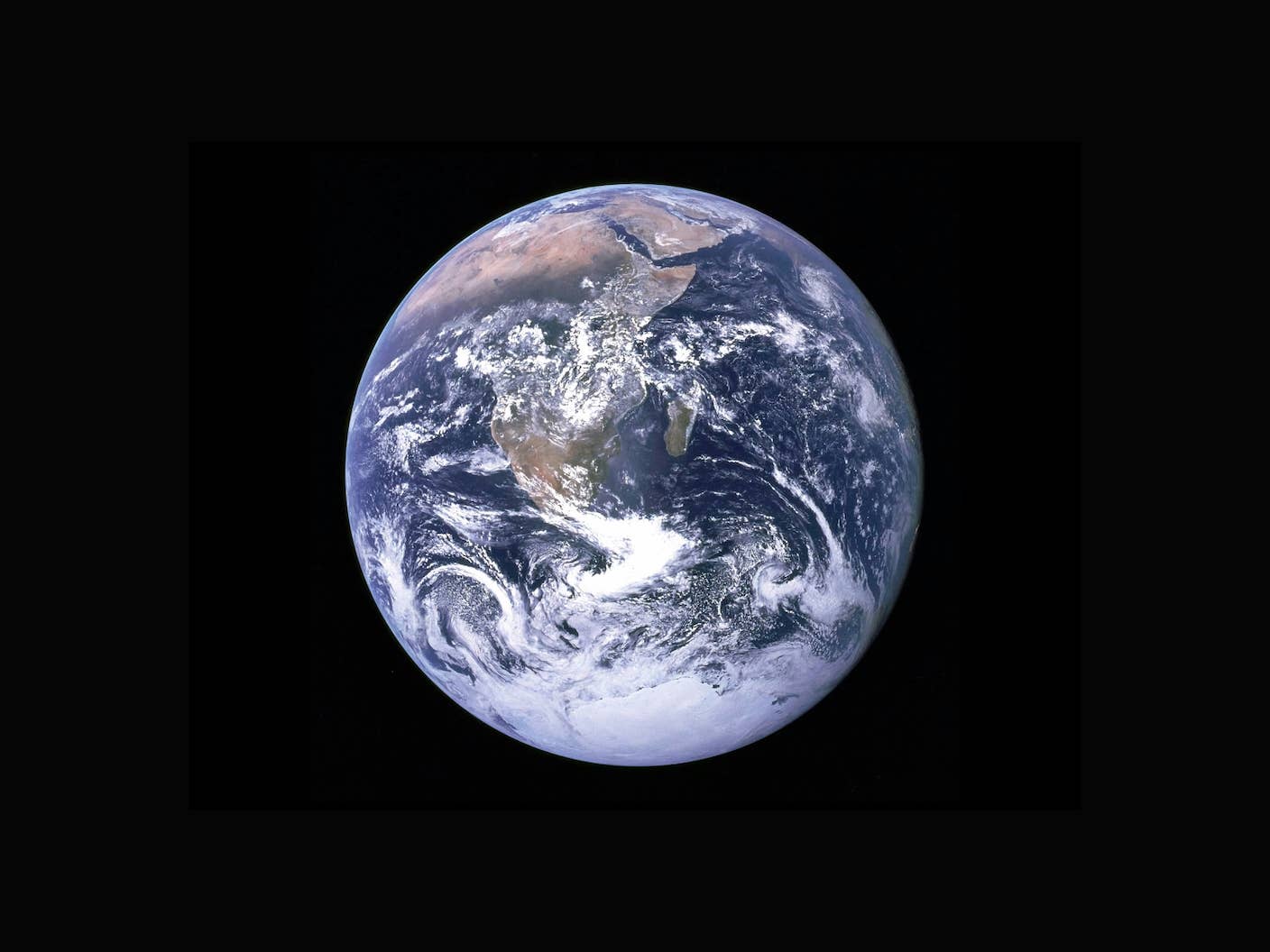Q&A with Filmmaker Jason Silva as He Preaches the Philosophy of the Singularity

Share
There are many futurists and techno-optimists in the world, but there is only one Jason Silva. The former host of Current TV, and fledgling documentary filmmaker is a force of personality and energy that is storming through the Singularity community. He recently spoke at this year's Singularity Summit in New York, and is popping up all over the media world with appearances in the Economist, Smart Planet, and PSFK. Not quite 30, Silva is known for his combination of youthful exuberance, high-tempo visual style, and unapologetic delight in discussing the future. Silva is part Timothy Leary, part Ray Kurzweil, and part Neo from The Matrix.
The young philosopher also has an eye for finding mind-blowing visuals to help express the indescribable impact of accelerating technology. His upcoming film, Turning Into Gods, will interview the luminaries of today about the extreme possibilities of tomorrow. The documentary is still under production. In the meantime, working with media group NotThisBody, Silva has created several videos that explore the ideas of techno-optimism through wonder and joy rather than cold numbers and graphs. Singularity Hub asked Silva to expound upon his unique approach to discussing The Singularity, and share some of his recent work.
Singularity Hub: You've been very busy this past year. Please give us an update on your Turning Into Gods documentary and other projects you've developed.
Jason Silva: It has been a whirlwind- the original concept trailer for Turning Into Gods was meant as an invitation to look at the future in a new way, and a means of fishing for collaborators. I wanted to offer a fresh vision fueled by passion, a new framing and context within which to explore the new 'adjacent possible' unleashed by exponentially emerging technologies. The result has exceeded expectations: I've recently partnered with an Oscar nominated producer to see the project to completion, I've spoken at the Singularity Summit, and I've had the trailer featured in Gizmodo, Vanity Fair, NextNature.net, FORBES and many other outlets.
I've also launched a series of short videos, in collaboration with Marija Coneva of NotThisBody. exploring the co-evolution of humans and technology. These videos are 'ecstatic meditations', meant to offer audiences multiple points of entry into these ideas. There's no need to wait until I finish the feature doc, because the conversation is meant to be ongoing. The short videos are like shots of 'philosophical espresso', or PSA's to infect you with AWE. They are non-commercial labors of love meant to be shared, and they seem to be resonating.
The latest installment, The Beginning of Infinity, inspired by David Deutsch's book of the same name, was shown to rousing applause at The Economist Magazine's World in 2012 Ideas Festival, as well as at the Singularity Summit in NYC. Chris Anderson, owner and curator of the TED Conference, called the video "stunning", Smart Planet wrote about it, and I've been invited to speak at the prestigious DLD Digital Life Design Conference in Munich. I'm also speaking at Lucid NYC in January.
[Editor's Note: Actually, the newest video from NotThisBody and Silva was just released and made the front page of Vimeo. Here it is:]
SH: Everyone has their own definition of The Singularity. To you, what is The Singularity, and what is it not?
JS: The Singularity is an epic metaphor: we all know the story, it's a way to describe an event horizon, just within our reach, where technological progress will be so profound and our human/technology symbiosis so deep, that by all accounts it will birth a new chapter in human history, a new epoch in the cosmos.
I find the ideas erotic, profound and intoxicating: exponential technological progress in biotechnology means reprogramming and upgrading our human wetware, much like we upgrade our imacs---It could mean curing cancer, disease, aging, the way we patch software problems.
Nanotechnology means impregnating matter with intelligence. Artificial intelligence means transcending the limitations of our biology... A future where Freeman Dyson predicts a generation of artists composing genomes the way Shakespeare composed verses. Synthetic biology ushers in an era where Kevin Kelly suggested we will transition "from the born to the made".
The Adjacent Possible is a term I love. First coined by Stuart Kaufman and popularized by Steven Johnson in Where Good Ideas Come From, it is defined as "a sort of shadow future, hovering on the present state of things, a map of all the ways the present can re-invent itself." This idea of probing the edges of possibility, (particularly when incorporating the realities of exponential growth curves manifested in technological progress), means the present can re-invent itself in dazzling new ways.
When a 60 million dollar supercomputer half a building in size becomes an iPhone in 40 years (and actually the iPhone is a thousand times more powerful) you can extrapolate where this momentum and progress is headed in the next 5, 10, or 20 years. Molecular sized devices interacting with our biological neurons and cells, virtual reality environments where we can render our dreams into being and build worlds where we can soar.
Be Part of the Future
Sign up to receive top stories about groundbreaking technologies and visionary thinkers from SingularityHub.


But here's the thing: we've been doing this all along. We bring our imagining into existence. We come up with virtual models in our heads---delightful future possibilities---and then we pull the present forward to meet those possibilities. If you could look at human progress over time as if through a timelapse film, you would see our dreams spilling over from our minds onto the world.
What has changed is the buffer time between what we imagine and what we create. Our greater tools means an ever shrinking lag time between dream and creation until we reach a crescendo, a rousing symphonic climax, a time when we can architect worlds into being like the lucid dreams in the film INCEPTION in REAL TIME!
SH: How did you become interested in advancing technologies and the promises of techno-optimism?
JS: Because technology has always improved the human condition. It seems counter-intuitive but I would point people to Matt Ridley's TED talk, "when ideas have sex", or Steven Pinker's Myth of Violence, or the website Gapminder.com chronicling human progress. Contrary to popular belief: things are getting better. X Prize founder Peter Diamandis has written a new book with Steven Kotler all about this. Its called ABUNDANCE: Why the future will be better than you think, and I encourage everyone to read it.
SH: There are many other futurists and techno-optimists out there, what do you hope to add to the discussion through your work?
JS: I have many heroes: Ray Kurzweil, Timothy Leary, Buckminster Fuller, Stewart Brand and more. These maverick men have worked hard to epiphanize minds and expand horizons. I just want a seat at the table. My opinion is that certain ideas are too big to fit inside their usual academic packaging. You need to give people other points of entry, other ways to engage with these ideas. Where is the ecstatic poet in all this? Who is talking about the visceral/existential implications of this radical progress? We need to make room for these philosophical ruminations, spaces to think out loud . I am confident that I am bringing a spirited and artful voice to the discussion. I love it when ideas have sex. I'm just trying to contribute to this space by sprinkling the ideas with aesthetic aphrodisiacs.
SH: Is there a single message that you want your audience to receive?
JS: I'd like people to understand the importance of delivery, aesthetics and presentation. The biggest, greatest ideas in the world still compete in 'the marketplace of ideas'. We need to influence public discourse if we are to make a dent in the cosmos. I'd love people to connect, exchange, think about big ideas. I want to get people excited about awe. I want to make content that induces rapturous bliss. There's no better way to feel.
SH: From the “Rapture of the Nerds” to “Robo-pocalypse”, the mainstream conceptions of what advancing technology bodes for the future tend to be either dismissive or dystopian. Can techno-optimism and The Singularity make it in the mainstream?
JS: I think the singularity is like a symphony playing on a cosmic scale- its the ultimate triumph of intelligence over entropy, complexity over disorder and low organization. Its Beethoven's 5th symphony choreographed across galaxies and throughout eons. Its the greatest dream we have ever dreamed, set to music and arousing goosebumps. As the end of the documentary Flight From Death states, "Life exists in individual moments and it is up to us to make those moments vast, interconnected and grand, to make a masterpiece out of life, one that we would willingly live again and again, for all of eternity. This is what we can strive for."
Why aim for anything less?
For more of Jason Silva and his awe-centric approach to the future, check out these two recent interviews with Critical Thought TV and Reason TV. You can also find him on his website, or follow him on Twitter.
[image credit: Jason Silva]
Related Articles

How Scientists Are Growing Computers From Human Brain Cells—and Why They Want to Keep Doing It

Scientists Say We Need a Circular Space Economy to Avoid Trashing Orbit

Scientists Race to Deliver Custom Gene Therapies for Incurable Diseases in Weeks—Not Years
What we’re reading
